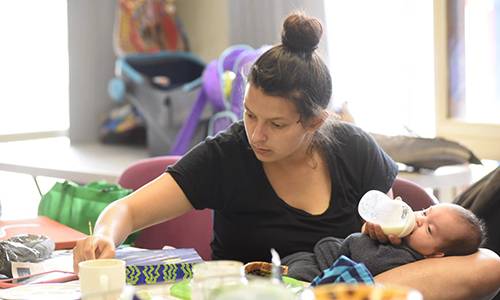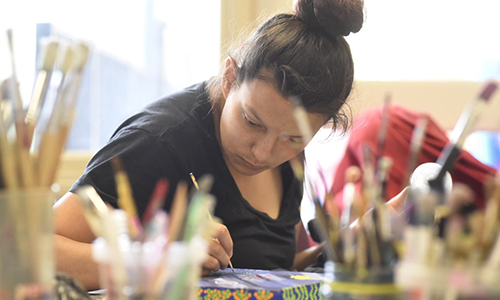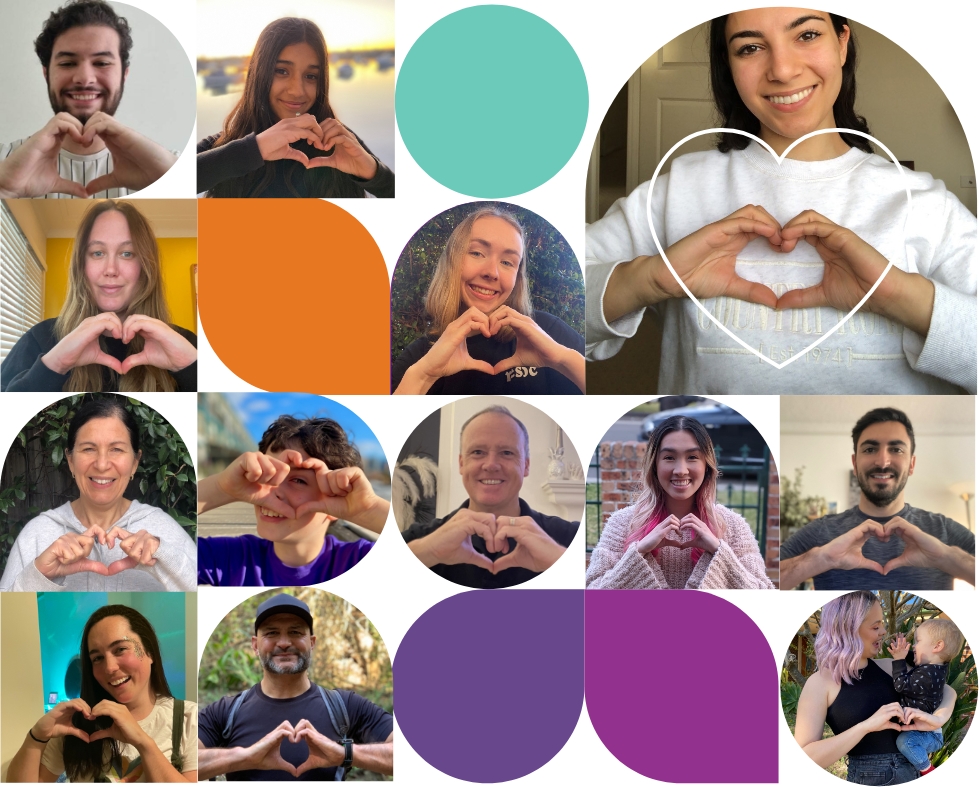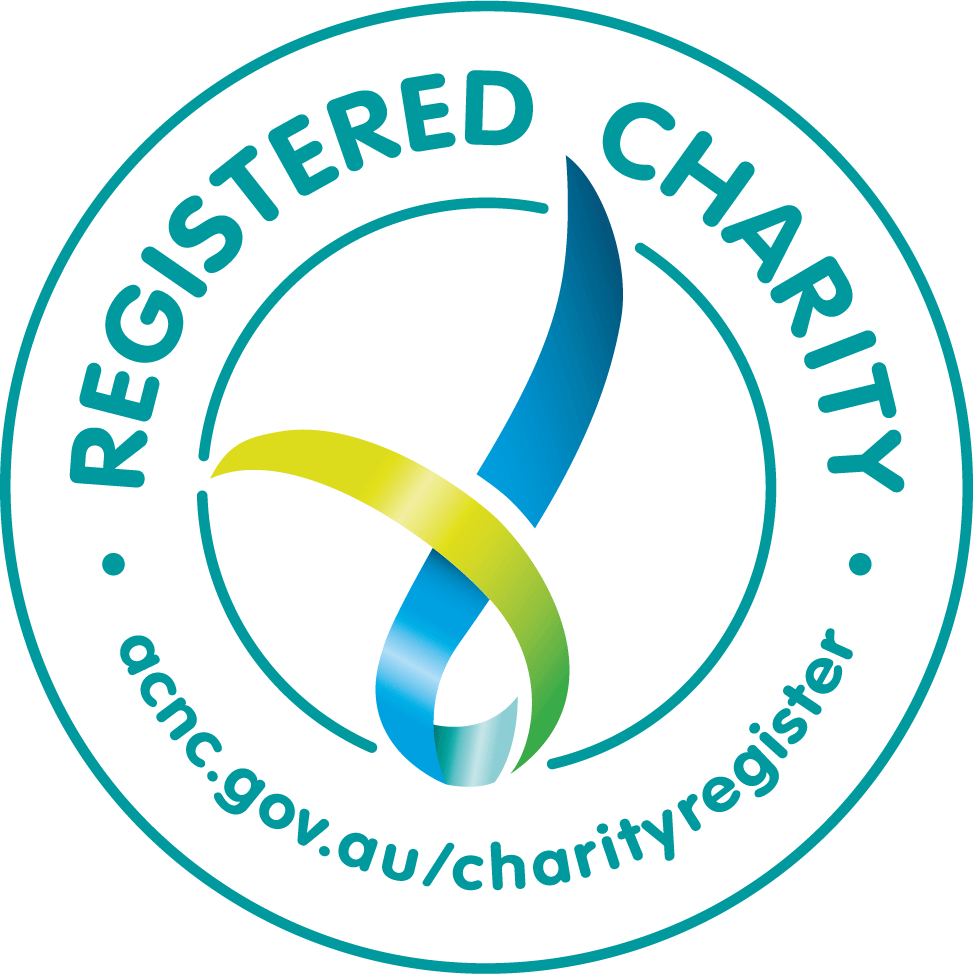Culture is an important aspect of Aboriginal health and wellbeing. Sydney Children’s Hospitals Network’s (SCHN) Ngala Nanga Mai pARenT Group Program focuses on cultural art-making sessions that foster identity, sense of belonging and resilience.
Ngala Nanga Mai (“We Dream”) was developed in 2009 by local Aboriginal mums after an Aboriginal Health Education Officer at Sydney Children’s Hospital, Randwick found local Aboriginal mums felt disconnected from social support and child health services. Run by the La Perouse Aboriginal Community Health Centre, it brings Aboriginal mums and their children together through art to promote their social, emotional, physical, and cultural health.

Improved access to health services
Ngala Nanga Mai is run by an Aboriginal Health Worker with support from a Program Manager who work closely with early childhood nurses, Aboriginal health workers, speech pathologists, social workers and paediatricians including the Foundation-funded Fellow. At the art-making sessions, healthcare workers interact with the children to conduct informal health assessments and notify mums of any concerns and facilitate follow-up care in the Aboriginal Health Clinic. Mums also receive informative talks on mother and child health issues while they work on their artwork, to raise awareness of key health issues and encourage access to services.
Childcare fosters healthy development
On-site childcare helps to support the program’s mums and their children. The program provides a vital developmental opportunity for the children of mums who are unable to access affordable formal childcare services. Through play, children learn critical physical, language, social and cognitive skills. They also benefit from the parenting techniques of qualified childcare workers.

Education and career opportunities
Participants in the childcare support can also explore education and career development opportunities, receive resume application support for jobs, education courses, and receive tutoring services provided onsite by TAFE Digital’s Aboriginal Education Training Unit’s Indigenous Tutorial Assistance Scheme.
Arts in Health and Community Development Program Manager Michelle Jersky said: “Previous evaluations have shown that Ngala Nanga Mai participants have improved use of health services, improved mental health, new aspirations for further education and employment, enhanced resilience and a keenness to give back to their community.”
SCHF is proud to be a long-standing supporter of Ngala Nanga Mai by working with our supporters to fund key elements of the program such as the art-making materials and childcare services.
Building on the success of the Ngala Nanga Mai program at Randwick, the Community Child Health team are evaluating opportunities to potentially expand the program by using the model to co-develop a local program at a new site. The Foundation are working closely alongside the team to identify potential supporters interested in funding this project.











